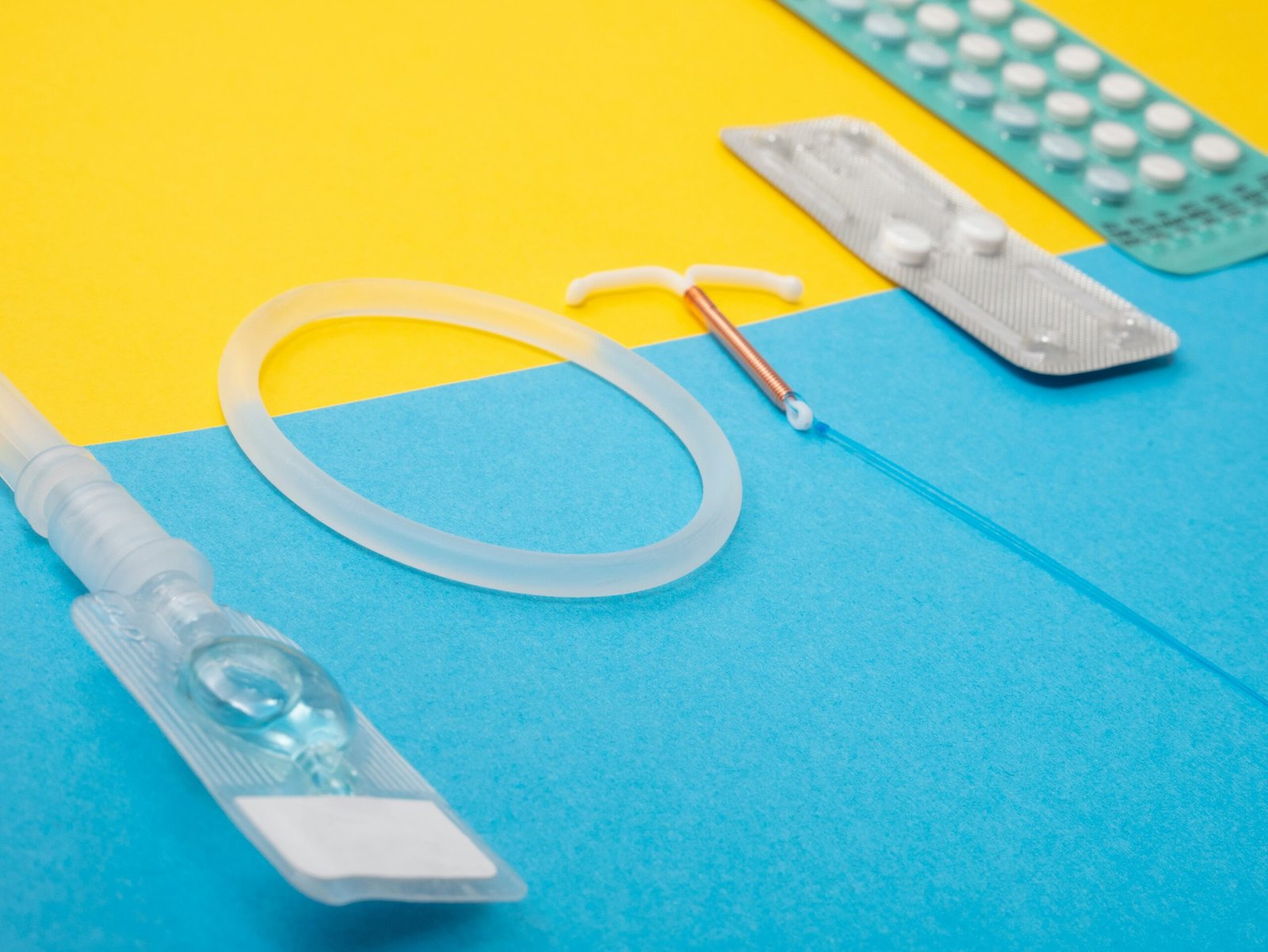
Understanding Hormonal Imbalances
Hormonal imbalances occur when there is an excess or deficiency of certain hormones in the body. These imbalances can occur due to a variety of factors, including stress, poor diet, lack of exercise, and certain medical conditions. When our hormones are out of balance, it can disrupt the delicate equilibrium that our bodies strive to maintain.
One of the most common hormonal imbalances is estrogen dominance, which occurs when there is an excess of estrogen in relation to other hormones, such as progesterone. This can lead to a range of symptoms, including heavy or irregular periods, mood swings, and weight gain. On the other hand, low estrogen levels can cause symptoms such as hot flashes, vaginal dryness, and difficulty sleeping.
In addition to estrogen, other hormones such as testosterone, cortisol, and thyroid hormones also play a crucial role in our overall health and well-being. Imbalances in these hormones can result in a wide range of symptoms, including fatigue, low libido, hair loss, and even depression.
Signs of Hormonal Imbalances
Recognizing the signs of hormonal imbalances is the first step towards restoring balance in your body. Some common signs include:
- Irregular periods
- Mood swings
- Weight gain or difficulty losing weight
- Acne or other skin issues
- Low libido
- Hair loss or thinning
- Insomnia or difficulty sleeping
- Fatigue or low energy levels
If you are experiencing any of these symptoms, it is important to consult with a healthcare professional who can help identify the underlying cause of your hormonal imbalance and develop a personalized treatment plan.
Natural Ways to Restore Hormonal Balance
Fortunately, there are many natural ways to support and restore hormonal balance in your body. One of the most effective strategies is to focus on a healthy lifestyle, including a nutritious diet, regular exercise, and stress management techniques.
Avoiding processed foods and incorporating more whole foods into your diet can help support hormonal health. Foods rich in omega-3 fatty acids, such as salmon and chia seeds, can help reduce inflammation and promote hormone production. Additionally, incorporating plenty of fruits and vegetables into your diet can provide essential vitamins and minerals that support hormone synthesis and balance.
Regular exercise is also crucial for hormonal balance. Physical activity helps regulate hormone levels, reduce stress, and improve overall well-being. Aim for at least 30 minutes of moderate-intensity exercise most days of the week, such as brisk walking, cycling, or swimming.
Stress management techniques, such as meditation, deep breathing exercises, or yoga, can also be beneficial for restoring hormonal balance. Chronic stress can disrupt the delicate hormonal equilibrium in our bodies, so finding healthy ways to manage stress is essential.
In conclusion, understanding hormonal health and how to balance your body naturally is crucial for overall well-being. By recognizing the signs of hormonal imbalances and implementing natural strategies, such as a healthy diet, regular exercise, and stress management techniques, you can support and restore hormonal harmony in your body.
The Importance of Hormonal Balance
Hormones are chemical messengers that regulate various processes in our bodies, including growth, metabolism, reproduction, and mood. When our hormones are in balance, we feel energized, focused, and emotionally stable. However, when there is an imbalance, it can lead to a range of symptoms and health issues.
Some common signs of hormonal imbalances include:
- Irregular menstrual cycles
- Mood swings and irritability
- Fatigue and low energy levels
- Weight gain or difficulty losing weight
- Acne and other skin problems
- Hair loss or excessive hair growth
If you are experiencing any of these symptoms, it is important to address the underlying hormonal imbalance to restore your overall health and well-being.
Hormonal imbalances can occur for a variety of reasons. One of the most common causes is stress. When we are under chronic stress, our bodies produce higher levels of the stress hormone cortisol, which can disrupt the balance of other hormones in our body. This can lead to a range of symptoms, including fatigue, mood swings, and weight gain.
Another common cause of hormonal imbalances is poor diet and lifestyle choices. Consuming a diet high in processed foods, sugar, and unhealthy fats can disrupt the delicate balance of hormones in our bodies. Additionally, lack of exercise, inadequate sleep, and exposure to environmental toxins can all contribute to hormonal imbalances.
Fortunately, there are steps you can take to restore hormonal balance. One of the most effective ways is through lifestyle changes. This includes adopting a healthy diet that is rich in whole foods, such as fruits, vegetables, lean proteins, and healthy fats. Regular exercise is also crucial for maintaining hormonal balance, as it helps to reduce stress and promote the production of endorphins, which are natural mood boosters.
In addition to lifestyle changes, there are also natural remedies and supplements that can help restore hormonal balance. For example, certain herbs, such as maca root and chasteberry, have been shown to support hormone regulation. Additionally, supplements like omega-3 fatty acids and vitamin D can also be beneficial for hormonal health.
If you suspect that you have a hormonal imbalance, it is important to consult with a healthcare professional who specializes in hormone health. They can help identify the underlying causes of your symptoms and develop a personalized treatment plan to restore hormonal balance.
In conclusion, maintaining hormonal balance is essential for overall health and well-being. By addressing the underlying causes of hormonal imbalances and making positive lifestyle changes, you can restore harmony to your hormones and improve your quality of life.
Natural Ways to Balance Your Hormones
While there are medical interventions available for hormonal imbalances, many people prefer to explore natural remedies first. Here are some effective ways to balance your hormones naturally:
1. Eat a Hormone-Balancing Diet
Your diet plays a crucial role in hormonal balance. Include plenty of fresh fruits, vegetables, whole grains, and lean proteins in your meals. Avoid processed foods, sugary snacks, and excessive caffeine, as they can disrupt your hormonal levels. Additionally, certain foods like flaxseeds, turmeric, and leafy greens are known for their hormone-balancing properties.
Incorporating these foods into your diet can provide essential nutrients that support hormone production and regulation. Flaxseeds, for example, are rich in omega-3 fatty acids, lignans, and fiber, which can help balance estrogen levels in the body. Turmeric contains curcumin, a compound with anti-inflammatory properties that can support hormonal balance. Leafy greens like spinach and kale are packed with vitamins and minerals that play a role in hormone synthesis and function.
2. Manage Stress Levels
Chronic stress can wreak havoc on your hormones. Find healthy ways to manage stress, such as practicing yoga, meditation, deep breathing exercises, or engaging in hobbies you enjoy. Prioritize self-care and make time for activities that help you relax and unwind.
When you’re stressed, your body releases cortisol, a stress hormone that can disrupt the balance of other hormones in your body. By incorporating stress management techniques into your daily routine, you can help reduce cortisol levels and promote hormonal balance. Yoga and meditation, for example, have been shown to decrease cortisol levels and improve overall well-being.
3. Get Adequate Sleep
Sleep is essential for hormonal balance. Aim for 7-8 hours of quality sleep each night. Create a relaxing bedtime routine, avoid electronic devices before bed, and ensure your sleep environment is comfortable and conducive to restful sleep.
During sleep, your body produces and regulates hormones, including growth hormone, melatonin, and cortisol. Disrupting your sleep patterns can interfere with hormone production and disrupt the delicate balance of your endocrine system. By prioritizing sleep and creating a conducive sleep environment, you can support your body’s natural hormone production and regulation.
4. Regular Exercise
Physical activity is not only important for overall health but also plays a role in hormonal balance. Incorporate regular exercise into your routine, such as brisk walking, jogging, cycling, or strength training. Find activities that you enjoy and make it a habit to move your body regularly.
Exercise can help regulate insulin levels, improve metabolism, and promote the release of endorphins, which are known as “feel-good” hormones. By engaging in regular physical activity, you can support the balance of various hormones in your body, including insulin, cortisol, and sex hormones.
5. Support Your Liver
The liver plays a crucial role in hormone metabolism and detoxification. Support your liver by reducing alcohol consumption, avoiding excessive use of medications, and incorporating liver-supportive foods into your diet, such as cruciferous vegetables, garlic, and turmeric.
Cruciferous vegetables like broccoli, cauliflower, and Brussels sprouts contain compounds called glucosinolates, which support liver detoxification and hormone metabolism. Garlic contains sulfur compounds that can help activate liver enzymes responsible for hormone breakdown. Turmeric, as mentioned earlier, has anti-inflammatory properties that can support liver function and hormone balance.
6. Consider Herbal Supplements
There are several herbal supplements that can help balance hormones naturally. Some commonly used herbs include maca root, chasteberry, and evening primrose oil. However, it is important to consult with a healthcare professional before starting any new supplements to ensure they are safe and appropriate for your individual needs.
Maca root is an adaptogenic herb that has been traditionally used to support hormonal balance, energy levels, and overall well-being. Chasteberry, also known as Vitex, has been used for centuries to help regulate menstrual cycles and alleviate symptoms of PMS. Evening primrose oil is rich in gamma-linolenic acid (GLA), an omega-6 fatty acid that can support hormone synthesis and balance.
While herbal supplements can be beneficial for some individuals, it is important to approach them with caution and under the guidance of a healthcare professional. They may interact with certain medications or have contraindications for certain medical conditions. A healthcare professional can help determine the appropriate dosage and duration of use for herbal supplements based on your specific needs and health history.

